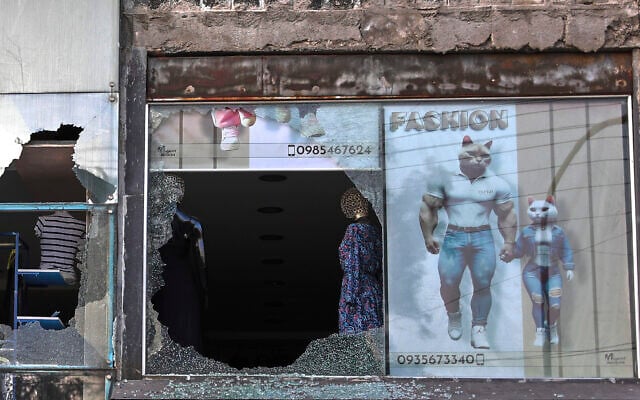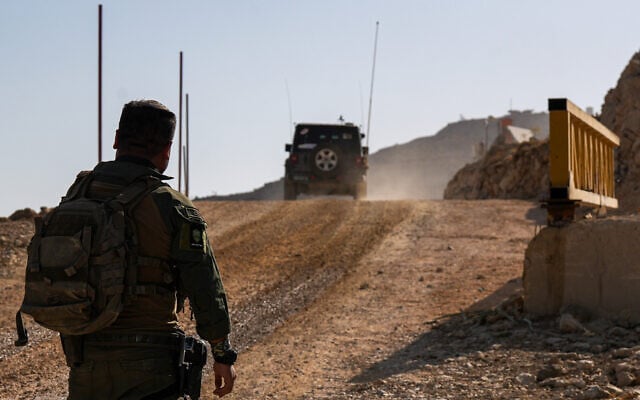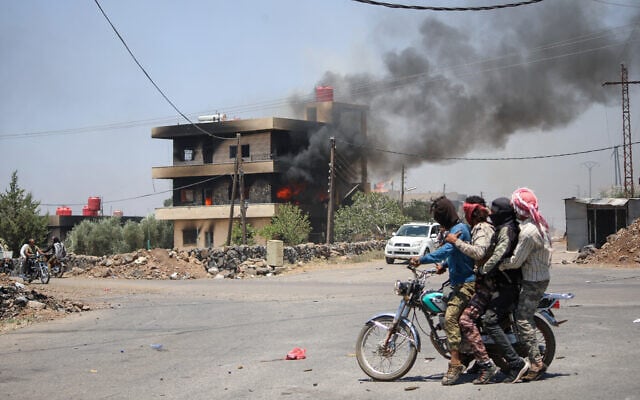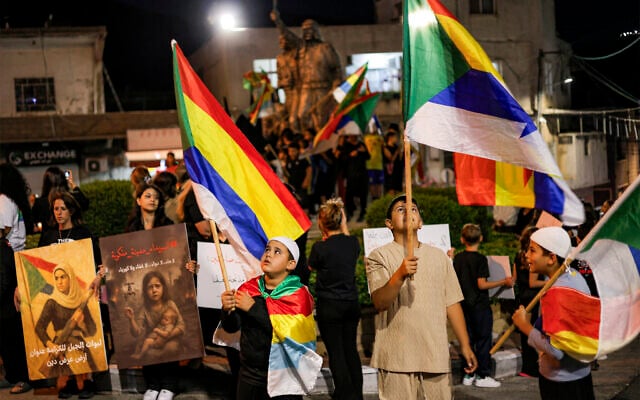

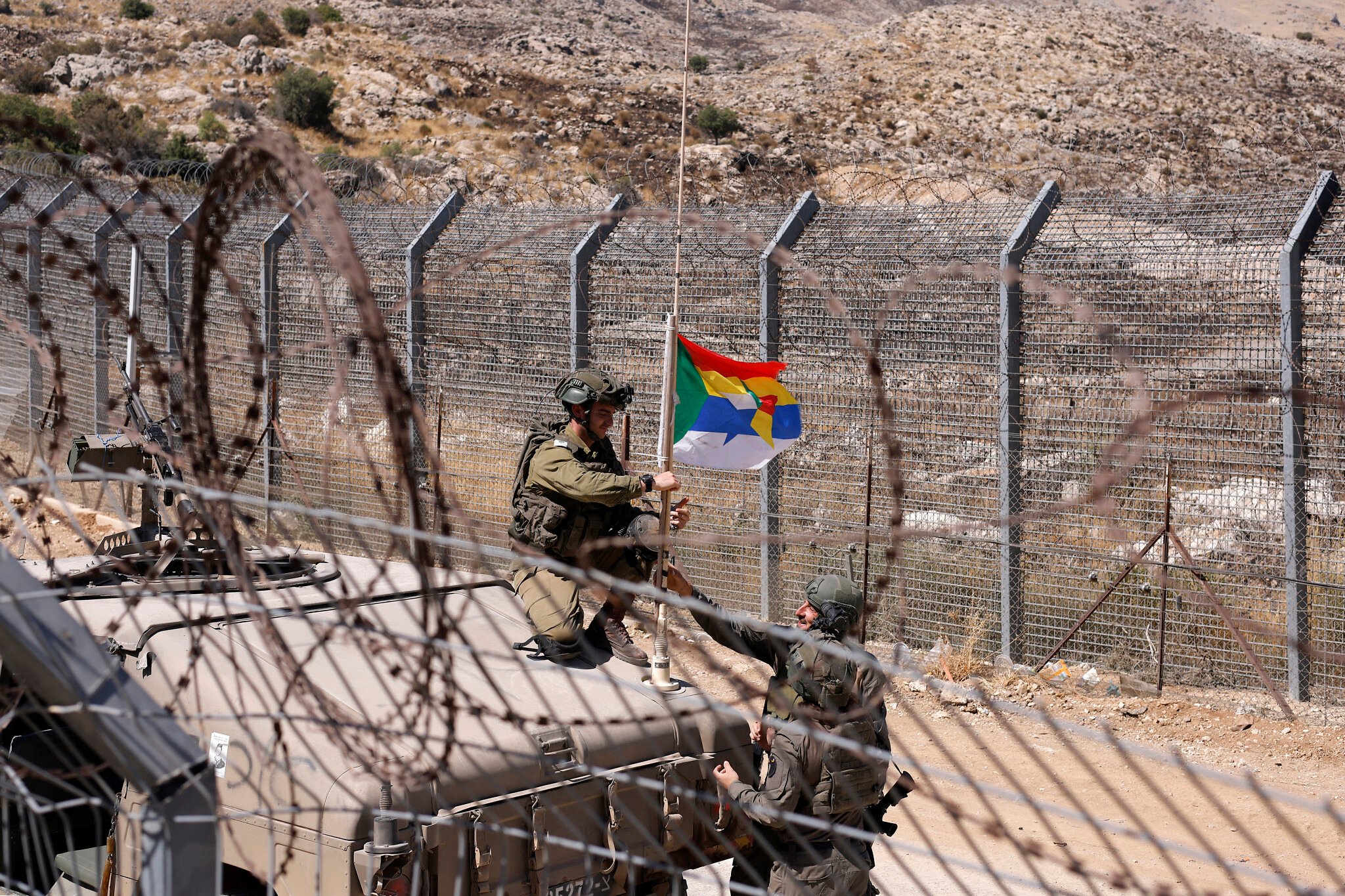
Israel is working to unite splintered Druze factions in Syria’s Sweida area, providing them with arms and paying salaries of militia members in the wake of recent attacks and massacres of the Druze community there, Reuters reported on Tuesday.
The report came as Syria was said to be accelerating talks with Israel, under heavy US pressure, for a security pact that Damascus hopes will reverse Israel’s recent seizures of its land but that would fall far short of a full peace treaty, according to sources briefed on the talks.
Two senior Syrian Druze figures, who requested anonymity due to the sensitivity of the matter, said that since deadly fighting in Sweida in July, Israel has been helping to unify splintered Druze factions and had delivered military supplies, including guns and ammunition, to them.
The two Druze commanders and a Western intelligence source said that Israel was also paying salaries for many of the roughly 3,000 Druze militia fighters.
Reuters was not able to independently confirm the munitions supplies or the payments. The offices of Prime Minister Benjamin Netanyahu and Strategic Affairs Minister Ron Dermer, who is spearheading Israeli talks with Syria, did not respond to Reuters’ questions on support for the Druze militia.
Washington is pushing for enough progress to be made in the talks between Israel and Syria by the time world leaders gather in New York for the UN General Assembly at the end of this month to allow US President Donald Trump to announce a breakthrough, four of the sources told Reuters.
Even a modest agreement would be a feat, the sources said, pointing to Israel’s tough stance during months of talks and Syria’s weakened position after sectarian bloodshed in its south inflamed calls for partition.
Reuters spoke to nine sources familiar with the discussions and with Israel’s operations in southern Syria, including Syrian military and political officials, two intelligence sources and an Israeli official.
They said Syria’s proposal aims to secure the withdrawal of Israeli troops from territory seized in recent months, to reinstate a demilitarized buffer zone agreed in a 1974 truce, and to halt Israeli airstrikes and ground incursions into Syria.
The sources said talks had not addressed the status of the Golan Heights, which Israel captured during the 1967 Six Day War. A Syrian source familiar with Damascus’s position said it would be left “for the future.”
Israel deployed troops to the demilitarized zone on December 8, 2024, the day a rebel offensive ousted Syria’s then-president, Bashar al-Assad. It struck Syrian military assets and sent troops to within 20 kilometers (12 miles) of Damascus.
Israel has shown reluctance during the closed-door talks to relinquish those gains, the sources said.
“The US is pressuring Syria to accelerate a security deal — this is personal for Trump,” said an Israeli security source, who said the US leader wanted to present himself as the architect of a major success in Middle Eastern diplomacy.
But, the source said, “Israel is not offering much.”
The offices of Netanyahu and Dermer did not respond to Reuters’ questions.
A State Department official said Washington “continues to support any efforts that will bring lasting stability and peace between Israel, Syria and its neighbors.”
The US has encouraged talks between Jerusalem and Damascus — keen to expand the countries that signed peace deals with Israel under the Abraham Accords during Trump’s first administration.
Exploratory contacts began in Abu Dhabi following Sharaa’s April visit to the Emirates, which has ties with Israel. The two sides then met in the Azerbaijani capital, Baku, in July.
Days later, discussions were plunged into disarray as clashes erupted between Druze fighters and Sunni Bedouin in Sweida, with the involvement of government forces.
Israel bombed Syrian government forces during the fighting, saying it was acting to defend the minority group as well as enforce its demands for the demilitarization of southern Syria.
Sharaa accused it of seeking pretexts to interfere in Syria’s south.
A US-brokered ceasefire ended the violence and, a month later, bilateral negotiations resumed in Paris – marking the first time Syria publicly acknowledged holding direct talks with its longtime foe.
However, the atmosphere in the room was tense, with a lack of trust between the two sides, according to two Syrian sources and a Western diplomat.
While Sharaa is willing to accelerate talks with Israel to please Washington, he remains wary, according to a Western intelligence officer, the Israeli official and Syrian source.
He has told Trump’s envoy to the negotiations Tom Barrack that conditions are not yet ripe for a broad peace agreement. “The basic elements of trust are simply not there,” said the Syrian official.
Israel’s position has been strengthened by the developments in Sweida, where Druze leaders are calling for independence and a humanitarian corridor from the Golan to Sweida — a challenge to Sharaa’s vow to centralize control of Syrian territory.
Syrian Foreign Minister Asaad al-Shibani dismissed the possibility of a humanitarian corridor at the Paris talks, saying it would infringe on Syria’s sovereignty, according to a Syrian official familiar with the discussions.
Both sides agreed that stability in Syria’s south was key to preventing a resurgence of covert agents linked to Iran, Hezbollah or any Palestinian terror groups — common enemies of Israel and Syria’s new leaders. Israel agreed to allow interior ministry forces to deploy checkpoints in Sweida.
“Both parties are probing areas of common ground,” said the Syrian official.
Sharaa is keen not to provoke his southern neighbor, aware of how much damage its military can inflict, one close aide said on condition of anonymity: “Avoiding confrontation is central to his plan to rebuild and govern.”


